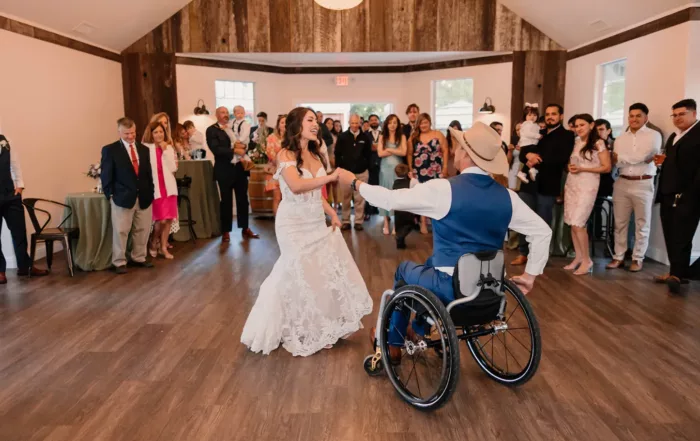Before you run start searching for venues or planners, here are ten things you must consider before marriage.
Relationships are beautiful, troubling, emotional, and downright complicated. Every relationship is different. And many married couples will tell you that marriage is tough. So why is something that’s supposed to be so good so hard? Because it takes work and dedication. However, there are some ways to determine the strengths and weaknesses of your relationship. These ten things can help you predict the long-term success of your relationship.
1. The “Honeymoon Phase” lasts for about a year.
The “puppy love” phase doesn’t last forever. According to a 2005 study by the University of Pavia, it lasts for a year or less. After your first year together, levels Of a chemical “raised plasma nerve growth factor,” which is associated with intense romantic feelings such as:
- Increased heart rate
- Not being able to focus on yourself
- Focusing on your partner 24/7 or very often
begin to decrease. It’s not exactly clear why these feeling starts to fade after a year, but it’s actually for good reasons. It’s very stressful on your body to spend so much time focusing on one person in that high-anxiety state.
2. Eventually, you’ll recognize that you and your partner are not “the same”.
Do you or did you feel like you and your partner are practically the same people? It’s perfectly normal to feel like this in a relationship, or even feel like you are entirely inseparable. But once you start living together, you’ll probably start to notice the differences. You have different routines, tolerances for things such as what constitutes a clean house, priorities, feelings, ideas, habits, opinions, and more. Once it starts to sink in that you are not the same person (if it hasn’t already), you hopefully learn to love your differences and appreciate them more. And speaking of appreciation….
3. If you appreciate your partner and they appreciate you, you’re much more likely to stay together.
Appreciation is vital in any relationship. My recommendation is to keep a private journal and record what you are grateful for you in your partner – every day. If you don’t have time to do this daily, try to do it weekly. However, the more you write down your gratitude, the stronger your relationship will be.
4. The couples most likely to succeed in marriage get married because they are in love, not familial or societal pressures.
According to a 2019 survey by eHarmony, couples who marry for love are much happier. While 88% of Americans wed for love, making it the most popular cause of marriage according to another source.
- Have regular date nights
- Hold hands more than other couples
- Work out together
- Have a complete circle of friends
- Have sex much more frequently than average
- Are more likely than average to drink together in a bar
- Live in an urban area
- Have 2+ kids living in their household
- Are more likely than average to have completed a higher level of education and have much higher than average household incomes
5. If you wait until after you’re at least 23 to get married, you’re much less likely to get a divorce.
A 2014 University of North Carolina at Greensboro study: Age at Coresidence, Premarital Cohabitation, and Marriage Dissolution: 1985–2009 discovered that women who get married around age 18 are 60% more likely to get divorced than women who wait until they’re 23. So if you’re younger, it may be in your best interest to wait a few years until you get married. You’ll go through many changes during these years, and it’s best to see how you and your partner adapt.
6. The best marriage is when you and your partner are BFFs.
The best marriages start with a friendship. When you develop a friendship for each other, and romantic feelings naturally happen afterward, your marriage is more likely to succeed. You and your partner should seek companionship in fun activities, short and long-term goals, creative and stimulating projects, Netflix & chill days, stressful days, and spiritual and emotional growth. The vulnerability and total self-gift of marriage may just forge the most profound friendship you may ever have.
7. You and your partner will inevitably change a lot over time.
Remember earlier when we advised you to wait until after you’re 23 to get married? This is because you and your partner are going to change a lot during your lifetime together. Those changes don’t just end in your 20’s. How you adapt to those changes together will tell how successful your marriage will be.
8. You and your partner need to talk about social media habits before you tie the knot.
Love it or hate it, most of us are on social media. So it probably doesn’t surprise that with the number of people on social media, the amount of arguments and riffs between couples about social media has increased. My advice is to put social media away for good, but that may be too extreme for some people.
If you have to use social media, definitely don’t use it when you’re with your partner if they’re expecting your attention (such as a one-on-one conversation or on a date night). Also, NEVER use it to follow or converse with ex-partners that would make them uncomfortable. Social media can be very detrimental to a relationship, but there is a respectable way to use it (and a decent amount of time!) It’s up to the two of you to determine what that is.
9. You and your partner can be compatible or incompatible on multiple levels.
Way back before you were even born (in the 60s), a Canadian psychologist named Eric Berne formulated a three-tiered model (AKA the transactional analysis) for understanding a person’s identity.
Essentially, we have three “ego states” that operate together:
- The parent: What you’ve been taught
- The child: What you have felt
- The adult: What you have learned
You relate to your partner on each of these levels, such as:
- The parent: Do we have similar values and beliefs about the world?
- The child: Do we have fun together? Can you be spontaneous? Do I think my partner is attractive? Do we like to travel together?
- The adult: Does II person think my partner is intelligent? Are we great at solving problems together?
Achieving cohesiveness across all three of these is ideal, but often we find that we have individual strengths and weaknesses. How you handle those and “balance each other” out is essential to your marriage.
10. The less materialistic you and your partner are, the more likely your marriage will succeed.
It’s not about how big your house is or how new your car is. A study of 1,310 married individuals published in the Journal of Family and Economic Issues found that materialism, or putting a high value on money and possessions, is associated with lower marital satisfaction. It’s essential to focus on things that can’t be bought, like quality time and engaging conversation.
BONUS: Planning a marriage can put a strain on your relationship.
According to a 500 couples survey by Zola Weddings, seven out of eight couples (96 percent) said wedding planning was stressful. And of those 500, 43 percent said it put a strain on their relationship.
Marriage isn’t easy because nothing worth having is ever easy.
It’s as simple as this: marriage is supposed to be hard. However, if you take the time to work on your relationship, compromise, and keep these ten things in mind, it can be much less complicated. Marriage is so worth it if you’re with the right person, and you work together. As they say, “What comes easy won’t last, and what lasts won’t come easy.”














